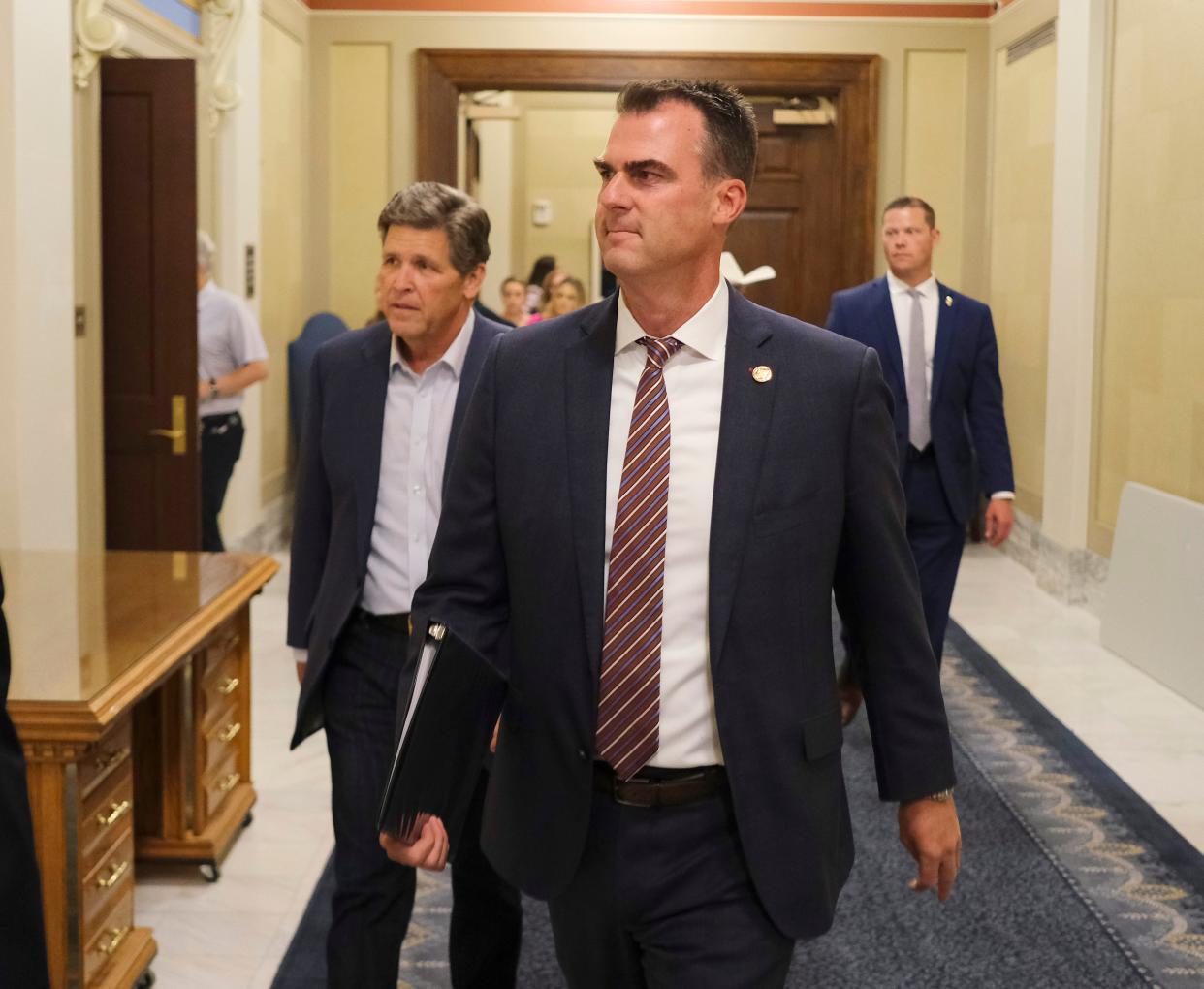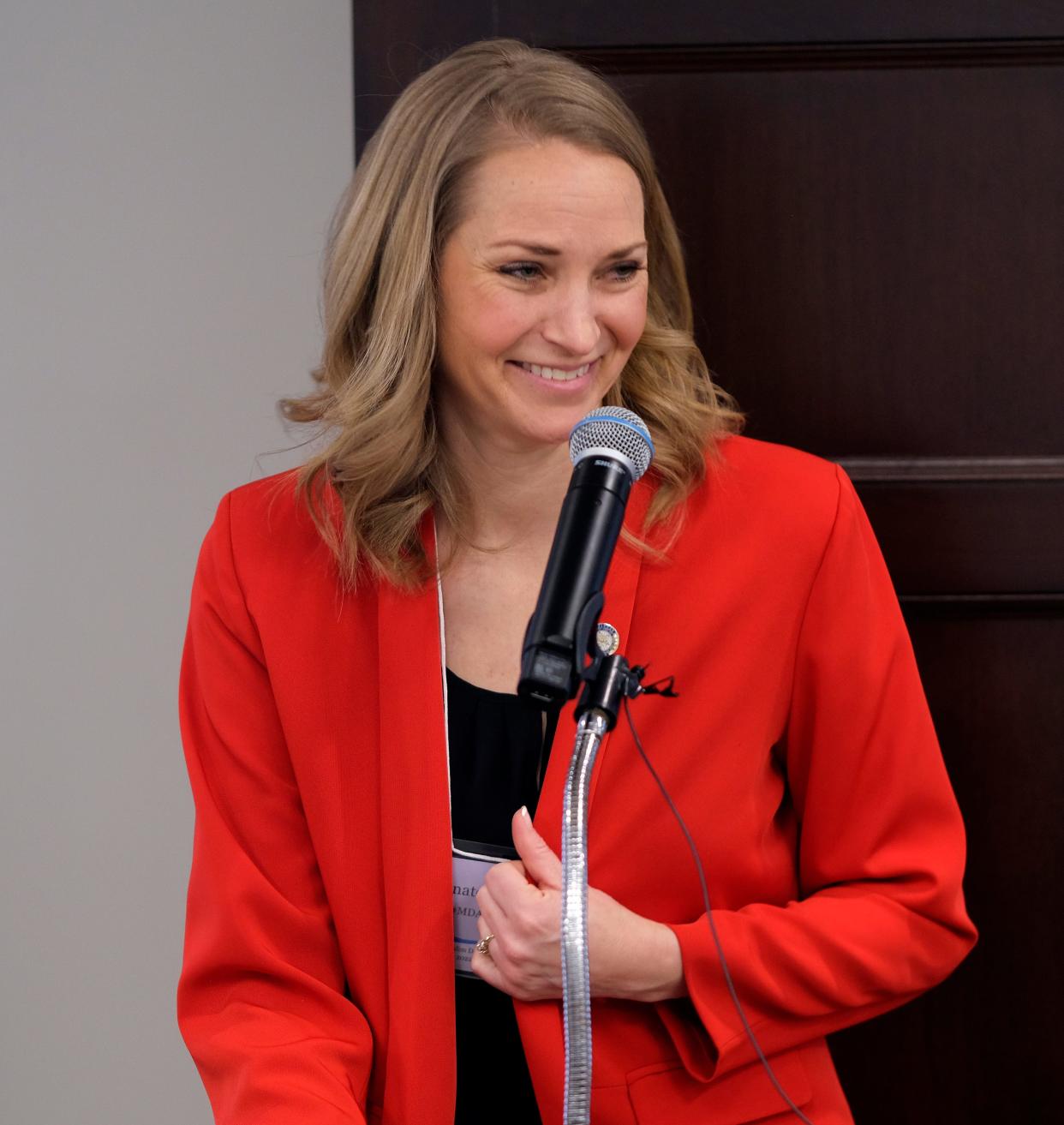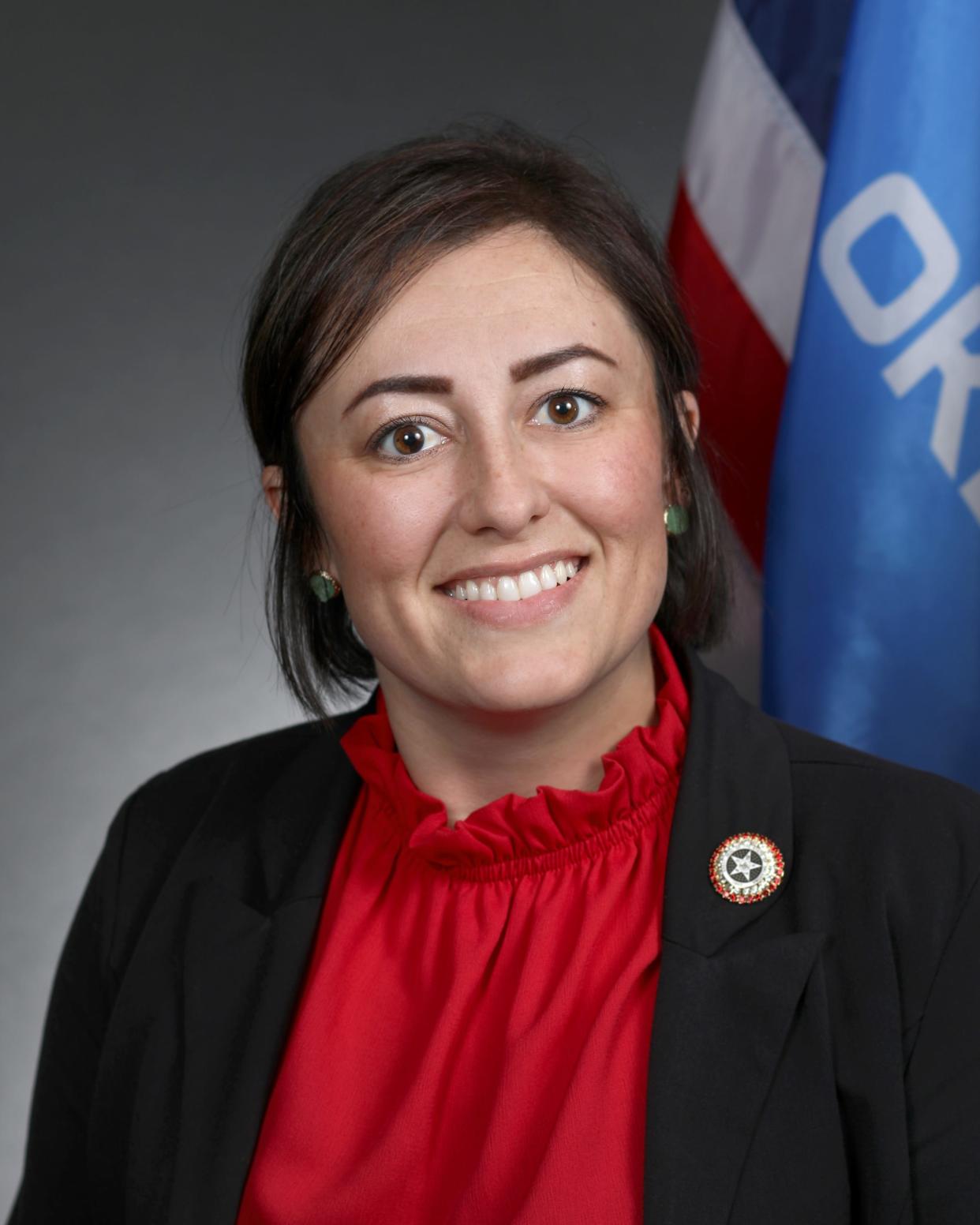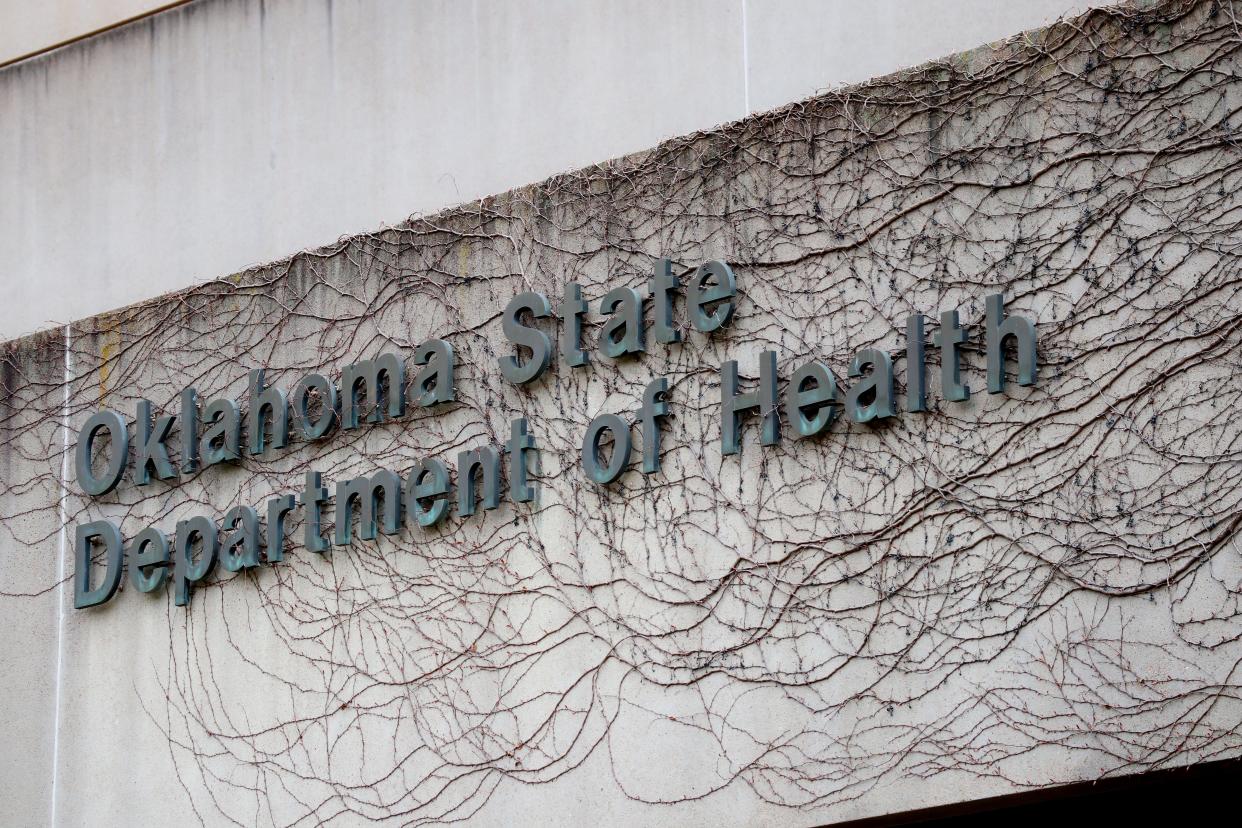With abortion banned, Oklahoma's 'maternal health crisis' grows
Jessica Garvin was a career-driven newlywed when she found out she was pregnant, news she wasn’t excited to hear.
“I felt like I had to choose between success in my professional life and success as a mother, and I never wanted to choose between the two,” said Garvin, who is now a Republican state senator from Duncan.
With strong family support, access to quality health care and the chance to take maternity leave at work, Garvin gave birth to a son, who is now 11.
Postpartum depression was another challenge she was able to address with family support and mental health care, things that are often out of reach for many women across the state.
“Abortion wasn’t an option for me because I had that (support) around me,” Garvin said. “But if I didn’t have that support system, I might also have had the word abortion in my vocabulary, which is why I understand why people who feel like they can’t do it on their own are maybe looking at abortion.”
Federal protections on abortion ended this year when the U.S. Supreme Court overturned Roe v. Wade, opening the door for Oklahoma’s Republican majority to outlaw abortion procedures. Opponents of the abortion ban saw it as the removal of a personal right, but also a further strain on a local health care system that has some of the nation’s worst outcomes for children and new mothers.

But both abortion rights advocates and those who support a ban say the coming months will be a critical time for lawmakers to take steps to expand pre- and postnatal health care services, especially if the number of unplanned pregnancies increases.
"I don't think there has been a more important time to tackle this issue because we were already in a maternal health crisis in Oklahoma," said Erin Coppenbarger, a maternal infant health initiatives manager for the March of Dimes, a nationwide organization that works to improve the health of mothers and babies.
Gov. Kevin Stitt, who signed multiple anti-abortion bills this year, agrees that the state's focus should turn toward improving supportive services, whether it be adoption, health care or counseling.
"From the moment life begins at conception is when we have a responsibility as human beings to do everything we can to protect that baby’s life and the life of the mother," Stitt said after signing an anti-abortion bill this year.
Governor's task force recommends expanding Medicaid coverage

Last week, a governor-created task force that is studying ways to improve support for new mothers recommended the state expand its Medicaid program.
Oklahoma has the lowest income cap in the nation for Medicaid pregnancy coverage, which is currently limited to pregnant women with incomes up to 138% of the federal poverty level.
The task force recommended an increase to 205% of the federal poverty level in order to expand coverage for nearly 2,500 more women, according to state estimates.
More:Stitt launches task force aimed at supporting families through pregnancies in post-Roe era
The task force also recommended extending postpartum coverage from 60 days to 12 months.
Stitt said he supports both recommendations, which will require approval from the federal government.
“I guess you could phrase it as a silver lining (of the abortion ban), but we should have been doing this stuff regardless,” said Sen. Carri Hicks, D-Oklahoma City, speaking about the two Medicaid expansion recommendations.
Hicks, who supports abortion rights, authored a bill in 2020 that would have expanded postnatal care to a full year. Her bill never received a hearing.

“I’m actually really excited (about these proposals) because it’s what I wanted to see two years ago,” Hicks said. “The question in the back of my head is how many more families could we have helped if we did this sooner, because the opportunity has been there.”
The ability to expand Oklahoma’s Medicaid program, which is called SoonerCare, is made possible because of federal laws that were often criticized by state Republican leaders.
Last year’s American Rescue Plan, a legislative package signed by President Joe Biden, allowed states to expand postpartum coverage up to a year, which at least 36 states already have chosen to do, according to Kaiser Health News.
Medicaid expansion under the Affordable Care Act, one of former President Barack Obama’s signature policies, has also helped improve birth outcomes in many states, according to a 2020 study from the Columbia University School of Social Work.
More:While it did improve some, Oklahoma still ranks low for child well-being in new report
While state officials had long rejected expansion, Oklahoma voters in 2020 approved a state question to expand Medicaid.
"When voters passed expansion, they were showing our state leaders that Oklahomans see the value of Medicaid and see the value in increasing our support for our neighbors, so (state leaders) are really following the lead of Oklahomans," said Emma Morris, a health care analyst at the Oklahoma Policy Institute.
Raising the income level cap for pregnant women to qualify for SoonerCare would bring Oklahoma in line with many neighboring states, including Texas, which already has a 203% cap, according to data from the Oklahoma Policy Institute.
At 70%, Oklahoma has the lowest rate of health insurance coverage for expecting mothers in the nation, according to a 2020 report from the March of Dimes.
Coppenbarger, who works for the March of Dimes, said both expansion proposals will save the lives of thousands of women, especially those who develop pregnancy-related health complications several months after giving birth.
"I don't even know where the 60-day window came from, but 50% of deaths occur beyond the 60-day period," Coppenbarger said.
Lawmakers likely to discuss crisis centers, contraception and other issues next session
Garvin, the state senator from Duncan, said she hopes to see a continued effort next legislative session for expanded health care for women and children.
She plans to file bills that would ensure a woman's access to contraception.
“I am looking at codifying the right to birth control, to say, ‘No, you can't have an abortion,’ but also, ‘Yes, you can have contraception,'” Garvin said. “I just want women to feel safe knowing they can have access to birth control and never have to worry if their doctor is going to give them birth control or not.”
However, Garvin realizes any effort will be met with concern over spending more money.

“When I talked (last year) about providing tampons, I would have some (lawmakers) say, ‘Oh it's just another expensive social program,’” Garvin said. “But the reality is when you provide tampons and pads to women, you are going to see an increase in that cost, but how many people are we going to keep out of the hospital because they don't have an infection? That saves us money in the long run.”
The two Medicaid expansion proposals will cost $12.3 million annually, with the federal government picking up about two-thirds of the cost.
The Oklahoma Health Care Authority plans to use cash reserves to cover the additional cost this fiscal year, and "will work with the Legislature to identify a sustainable funding source for FY 2024 and beyond," said Melissa Richey, a spokesperson for the agency.
Republican lawmakers also have said they want to increase funding for crisis pregnancy centers, controversial organizations that the state has struggled to effectively send money to in recent years.

The Oklahoma Pregnancy Care Network, which is an Oklahoma City-based nonprofit that won a contract with the Oklahoma State Department of Health in 2020 to disburse state funds to multiple centers across the state, originally pledged to funnel $1.6 million to numerous centers across the state. But a Health Department audit this year found it had only dispersed about 6% of its projection, spending three times as much on its own salaries than on pregnancy centers.
“The level of performance to date is concerning as well as the limited number of women actually being served,” the audit said.
More:Oklahoma anti-abortion program pledged to help 9,300 women. It spent more on salaries than aid
In recent months, the nonprofit has been sending more state money to crisis pregnancy centers, according to records obtained by The Oklahoman.
In June, $91,000 was sent to seven different crisis pregnancy centers.
Crisis pregnancy centers, which are often associated with religious organizations and are against abortion, have been found by some to provide misinformation about abortion procedures in an effort to steer women toward continuing with their pregnancy.

Hicks, the Democratic state senator from Oklahoma City, said the state's focus should be on health care funding and state-based programs.
“I’m hopeful that we are going to see some policies that can improve care, but I am concerned in the short term that we just made things worse (by outlawing abortion),” Hicks said.
While Hicks hopes to see more proposals this legislative session that seek to improve health care, she also worries about bills that might seek to limit contraception and continue to make it harder for schools to weigh in on topics like sexual education, topics some lawmakers already have brought up on the campaign trail this election year.
"It's about improving access to health care, but it is also about increasing financial independence and economic independence for women, and better education in schools," Hicks said. "We know the things that work, and if we are serious about the life of the mother, then we need to do all these things right now."
Oklahoma state government reporting is supported in part by a grant from the Kirkpatrick Foundation. To support work like this, consider purchasing a digital subscription to the Oklahoman today.
This article originally appeared on Oklahoman: Oklahoma abortion ban brings need for improved maternal care
